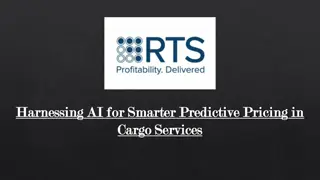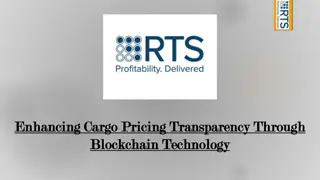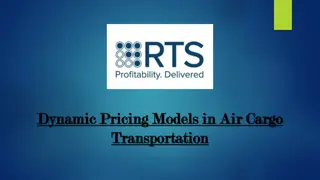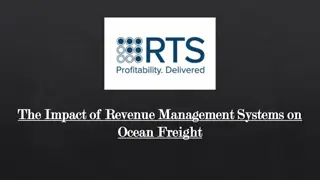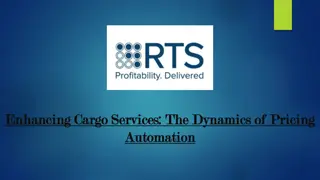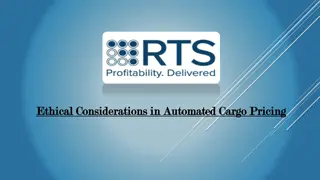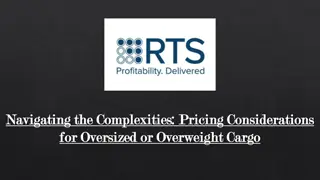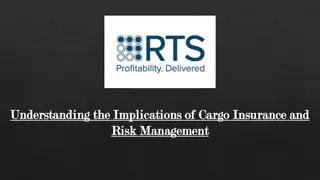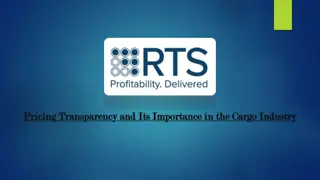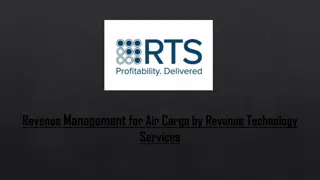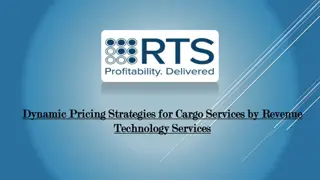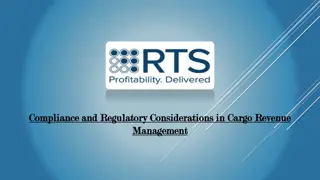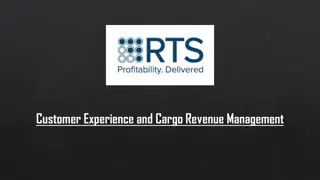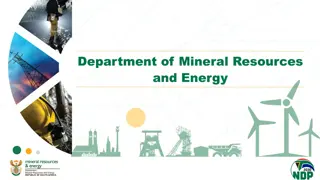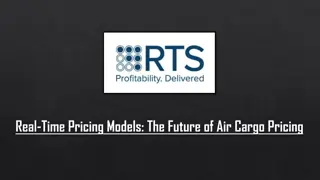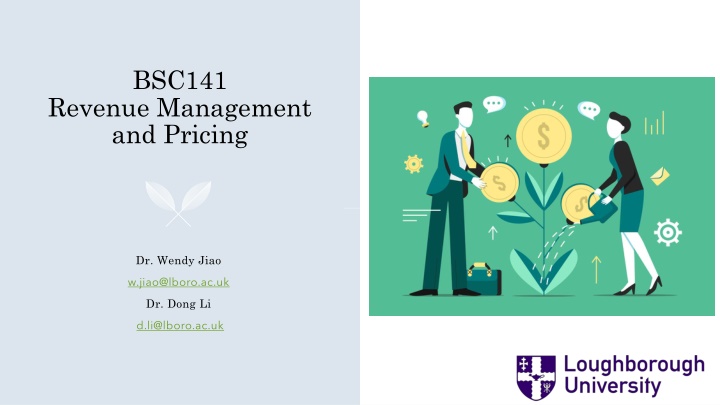
Understand Revenue Management and Pricing Strategies
Discover how industries enhance revenue through pricing analytics and capacity management strategies. This module focuses on setting pricing decisions to maximize profitability, enhancing numerical and analytical skills, and implementing Python programming in real-life scenarios. Learn about revenue optimization opportunities in various business contexts.
Download Presentation

Please find below an Image/Link to download the presentation.
The content on the website is provided AS IS for your information and personal use only. It may not be sold, licensed, or shared on other websites without obtaining consent from the author. If you encounter any issues during the download, it is possible that the publisher has removed the file from their server.
You are allowed to download the files provided on this website for personal or commercial use, subject to the condition that they are used lawfully. All files are the property of their respective owners.
The content on the website is provided AS IS for your information and personal use only. It may not be sold, licensed, or shared on other websites without obtaining consent from the author.
E N D
Presentation Transcript
BSC141 Revenue Management and Pricing Dr. Wendy Jiao w.jiao@lboro.ac.uk Dr. Dong Li d.li@lboro.ac.uk
Why choose this module? You may select this model if you want to Learn how the industries such as airlines, hotels, retailers increase revenue by using pricing analytics and capacity management strategies Revenue management and pricing focuses on how a firm should set and update pricing and product availability decisions across its various selling channels to maximize its profitability. Further your numerical and analytical skills in real life problems Learn (or enhance) Python programming skills and implement it in real life applications This module introduces both the theory and the practice of revenue management and pricing. Identify and exploit opportunities for revenue optimization in different business contexts.
Module background Introduce both the theory and the practice of revenue management and pricing. Evaluate and analyse revenue improvement opportunities where capacity or prices can be changed to better match supply with demand.
Module Outline Customer valuations game Models of consumer demand Capacity allocation under uncertainty Market segmentation Revenue management Dynamic programming Python programming Pricing analytics
Teaching and Learning Student effort made up of: a) Contact time: see the table b) Private study comprising guided reading and preparation associated with lectures and workshops; student self-directed reading in the subject area of the module; preparation and production of assessed coursework; examination preparation and revision. Activity Hours Guided independent study 73 Lecture 20 Practical classes and workshops 7 Total 100
Assessment and Feedback Group Coursework (40%) Exam (60%) Word limit: 2000 words Individual group feedback Time length: 1.5 hours Generic written feedback on examinations
Knowledge and Understanding Wider skills and knowledge development A01: Describe the current pricing and revenue management practice A02: Understand the key methodologies, models and tools of revenue management and pricing Subject-Specific - Cognitive Skills B01: Derive and compute price-demand functions, fit and use discrete consumer choice models B02: Formulate and solve for revenue management and pricing decisions using quantitative methods B03: Evaluate historical price/demand data using statistical and analytical methods to identify distinct customer segments and target them with the right product at the right price. Subject-Specific - Practical Skills C01: Implement optimal revenue management and pricing models in practice C02: Identify and develop opportunities for revenue optimisation in different business contexts Key Transferable Skills D01: Apply qualitative and quantitative reasoning from available information D02: Hone the skills in literature search, formulation, problem solving and critical analysis
Reading material Talluri, K.T. and Van Ryzin, G.J., 2006. The theory and practice of revenue management (Vol. 68). Springer Science & Business Media.. Bodea, T. and Ferguson, M., 2014. Segmentation, revenue management and pricing analytics. Routledge. Gallego, G. and Topaloglu, H., 2019. Revenue management and pricing analytics (Vol. 209). Heidelberg: Springer.

